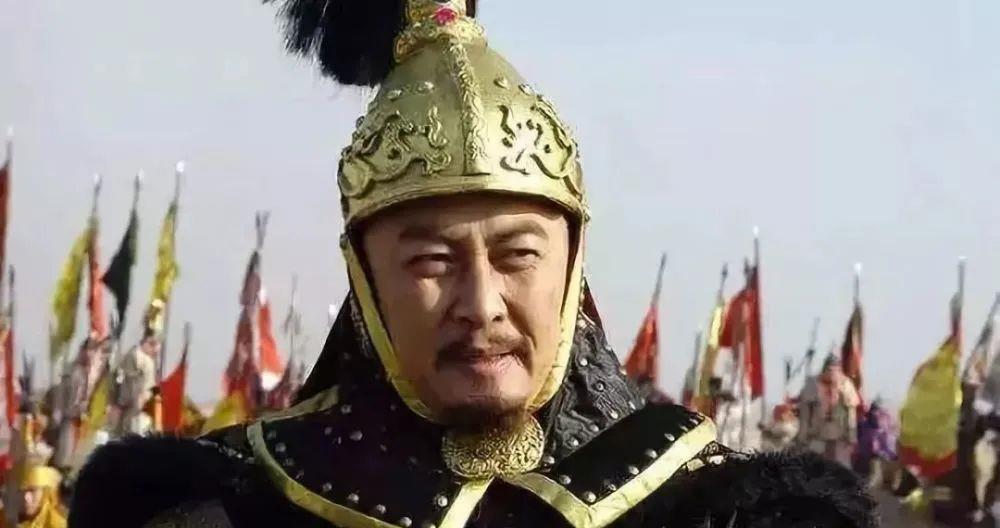The Manchu Qing rose in the white mountains and black water at the end of the Ming Dynasty and the beginning of the Qing Dynasty, "Longxing Guanwai", the first generation of leaders Nurhaci was the founder, and later led the Manchu Qing into the customs to dominate was Dolgun, the first generation of emperors after the Manchu Qing entered the customs was Shunzhi, these people are the key figures in the rise of the Manchu Qing.
In the process of the rise of the Manchu Qing, there was one person whose role was supremely great, and this was the second generation leader of the Manchu Qing, Huang Taiji.
What is the excellence of Huang Taiji, and what contribution did he make to the Manchu Qing?

Emperor Taiji was Nurhaci's eighth son, he was intelligent and studious since childhood, and in addition to inheriting Nurhaci's bravery and strength, he also liked Han culture, which was what distinguished him from Nurhaci's other sons.
At that time, after the Golden Grass Creation, the people were popular and martial, did not produce, and exclusively pursued force, and for the Han and Han culture, the Manchurians were also more rejected and unwilling to accept.
Emperor Taiji had outstanding performances in many of the battles of Jin after nurhaci was founded, and he participated in major battles such as the Battle of Salhu.
In the eleventh year of the Mandate of Heaven, the sixth year of the Ming Dynasty's Apocalypse, in 1626 AD, Nurhaci died violently, and Emperor Taiji ascended to the highest power throne in Manchuria through a power struggle, and then began his "open hanging" rule.
Although Nurhaci achieved some military victories against the Ming Dynasty, the form of war changed significantly as the Ming Dynasty changed its strategy towards Houjin, adopting a fortified wall and clearing the wilderness, taking the Korean Mongols as its wings and blocking the Houjin strategy.
At that time, Nurhaci pursued an extreme ethnic policy, the Han Mongols in the Liaodong region, the Koreans, and the Manchus were in the same water and fire, and the people in the Later Jin rule area were not happy and their productivity was very low.
Because Nurhaci did not like to use Han Chinese, the Han bureaucratic landlords in the Liaodong region could only resist to the end and would rather die than surrender, which undoubtedly greatly increased the internal pressure of Houjin.
It can be said that the Houjin that Huang Taiji took over was not a group strong enough to defeat the Ming Dynasty, but a situation in which there was insufficient people, a loose internal structure, the economy was on the verge of collapse, it was attacked on all sides, and the entire group lacked a clear strategy.
If all this could not be changed, the Later Jin could be crushed by the powerful military and economic pressure of the Ming Dynasty and its allies.
After Emperor Taiji came to power, he first abolished the earlier military democratic system and adopted a strong centralization of power, which was arbitrary and monopolized.
Then he changed his extreme ethnic policy, giving preferential treatment to all other ethnic groups, including the Han, as long as they were willing to surrender, and paying attention to recruiting Han bureaucratic landlords to join and let them advise the Later Jin.
Huang Taiji also encouraged agricultural production and strengthened its own economic strength.
Militarily and diplomatically, he coerced and seduced Korea and Mongolia, soft and hard, and finally took these two feathers and minions who were originally subordinate to the Ming Dynasty into his own hands.
Through a series of operations, the houjin army is strong, the number of people is increased, and the economic strength is greatly enhanced. In the tenth year of Tiancong, in 1636 AD, Emperor Taiji declared himself emperor, set the name of Qing, and began to launch a large-scale invasion of the Ming Dynasty.
In the early years of Chongde, Emperor Taiji attacked several thousand miles in a row, breaking through the Great Wall and entering the Chinese mainland, not only plundering a large number of people, cattle, horses, gold and silver, but also forcing Yuan Chonghuan to die, resulting in the suicide of Lu Xiangsheng and others.
In the fifth year of Chongde, in the Battle of Songjin, The Emperor Taiji intercepted the grain and grass of the Ming army and broke the 130,000 Ming army, which was the last main force of the Ming Dynasty, after this battle, the Ming Dynasty ran out of oil and was no longer able to stop the development of the Eight Banner Army.
In the eighth year of Chongde, Emperor Taiji died at the age of fifty, and less than a year after his death, Dolgun led the Eight Banner Army from Shanhaiguan into the Central Plains, starting the Manchu Qing Dynasty's war to unify the world.
Huang Taiji took over a loose and backward, economically withered, lack of strategic guidance, and could only live in a corner of the Liaodong province, and what he left behind after his death was a highly centralized feudal empire with strong troops and clear strategic intentions, dominating the entire northeast and Mongolian steppe.
It can be said that without Huang Taiji, there would be no Later Manchu Qing into the Central Plains, in 1644 AD, the elite of the Eight Banners led by Dolgun defeated the resistance army of Li Zicheng and Nanming, which was actually the peak of military strength in the history of the Manchu Qing for more than two hundred years, and this group of elite soldiers and fierce generals was mostly tempered by the operation of Huang Taiji.